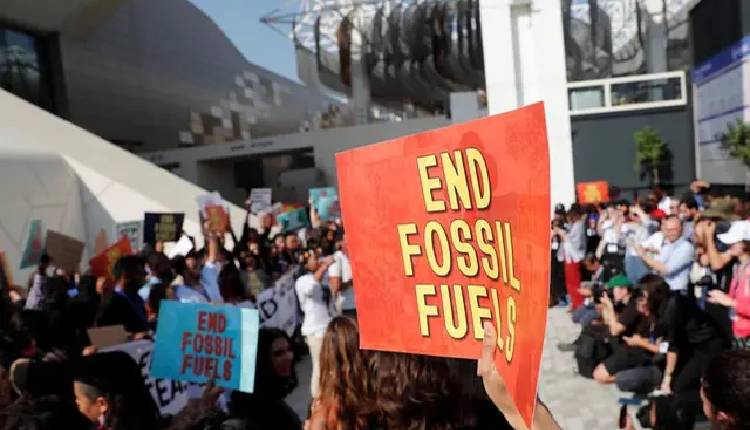COP28 in overtime as negotiators push for phase out deal
The COP28 was rapidly approaching an extended schedule on Tuesday as negotiators anticipated a new draft agreement after numerous countries expressed dissatisfaction with the previous version, which they deemed insufficient due to the lack of a provision for the “phase out” of fossil fuels.
Countries assembled at the Dubai conference are attempting to agree on a global plan to curb climate change swiftly enough to prevent catastrophic floods, lethal heatwaves, and irreversible alterations to the planet’s ecosystems.
A preliminary version of a final agreement, released on Monday by the United Arab Emirates, the current chair of the summit, proposed eight potential measures that nations “could” implement to reduce emissions.
One of the suggested measures was “reducing both consumption and production of fossil fuels in a just, orderly, and equitable manner so as to achieve net zero by, before, or around 2050.”
This would mark the first time that a U.N. climate conference addressed the reduction of all “fossil fuels.”
The action didn’t meet the expectations of many countries for a “phase out” of coal, oil, and gas or the urgency to reduce their use within this decade, as scientists deem necessary to prevent worsening climate change.
As the summit was supposed to end on Tuesday, negotiators were awaiting a revised document. However, delegates believed the deadline was unrealistic, as COP summits rarely finish on schedule.
The draft faced opposition from participants such as Australia, Canada, Chile, the European Union, Norway, and the United States. These countries are among a group of 100 that are calling for a firm commitment to shift the world from dependence on coal, oil, and gas.
Brazil is advocating for a more robust document on abandoning fossil fuels, but one that distinctly indicates that affluent and less wealthy countries could achieve this at varying paces, according to Brazilian Environment Minister Marina Silva.
Sources indicated that Sultan al-Jaber, the COP28 President from the UAE, was under pressure from Saudi Arabia, the de facto head of the OPEC oil producers’ group, which includes the UAE, to remove any mention of fossil fuels from the document, which he did not do.
During the COP28 discussions, negotiators and observers informed Reuters that Saudi Arabia has been the most vocal adversary. Other members of OPEC and OPEC+, such as Iran, Iraq, and Russia, have also opposed the inclusion of a fossil fuel phase-out in the agreement.
The EU climate commissioner, Wopke Hoekstra, stated that the draft agreement was “disappointing” and the group would extend negotiations to secure a more robust document. “We will talk as long as necessary,” said Hoekstra.


